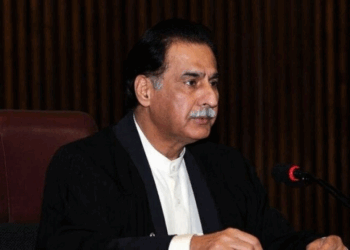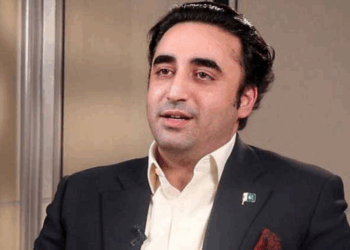Islamabad, January 31, 2025: Seven judges of the Islamabad High Court (IHC) have written a letter to the Chief Justices (CJs) of the Supreme Court and other high courts, expressing their opposition to reports that a judge from the Lahore High Court (LHC) might be appointed as IHC Chief Justice following the elevation of the current CJ. The judges called for a unified stand against this potential development, emphasizing the threat it poses to judicial independence.
Recent media reports indicated that judicial authorities are considering transferring a judge from the LHC to lead the IHC, with another judge from the Sindh High Court (SHC) potentially being moved as well. Traditionally, the senior-most judge of a high court is appointed as its chief justice. However, the Judicial Commission of Pakistan (JCP) introduced new rules last year allowing the selection of a chief justice from among the top five senior-most judges, bypassing seniority in light of the 26th Constitutional Amendment.
The letter, which was addressed to Chief Justice Yahya Afridi and the Chief Justices of Islamabad, Sindh, and Lahore, was signed by IHC’s senior puisne judge, Justice Mohsin Akhtar Kayani, and six other IHC judges. The judges expressed concern that the proposed transfer undermines the autonomy of high courts, stating that such appointments could create friction and jeopardize the smooth functioning of the judiciary.
The letter argued that high court judges take their oaths under Article 194 of the Constitution with respect to a specific province or, in the case of the IHC, Islamabad. Since the passage of the 18th Amendment, there has been no precedent for permanent transfers of high court judges under Article 200, which the letter emphasized remains unchanged despite the 26th Amendment.
The judges further asserted that allowing such transfers would be detrimental to the independence of the judiciary, as it could enable control over a high court by a judge unfamiliar with its internal seniority structure. They warned that such a precedent would have far-reaching consequences for the judicial system, potentially creating perverse incentives for judges to seek favor with those in power.
The letter also criticized the reported justification for the transfer, which cited pendency in the IHC’s cases and vacant judicial positions. The judges pointed out that the LHC had worse figures in both areas and stated that there was no public interest in pursuing such a transfer.
Moreover, the judges underscored that appointments to high courts are the prerogative of the JCP, which had recently filled two vacant IHC seats after careful deliberation. Any attempt to circumvent this process through Article 200, they argued, would undermine the constitutional mechanism for judicial appointments.
The letter concluded with a call for the Chief Justices to advise President Asif Ali Zardari against allowing the transfer, stating that it would be unconstitutional and harmful to judicial independence.
Sources indicate that Justice Sardar Mohammad Sarfraz Dogar of the LHC is the judge being considered for transfer to the IHC. Upon transfer, Justice Dogar would become the senior-most judge of the IHC until CJ Aamer Farooq’s elevation to the Supreme Court. Justice Kayani is currently the senior puisne judge of the IHC, with other judges ranking in the following order: Justice Aurangzeb, Justice Jahangiri, Justice Sattar, Justice Khan, Justice Tahir, and Justice Imtiaz.
The transfer would be made under Article 200 of the Constitution, which allows for the transfer of high court judges with their consent and after consultation with the CJP and the Chief Justices of the relevant high courts. The formal process for Justice Dogar’s posting has reportedly already begun, despite opposition from some IHC judges.








